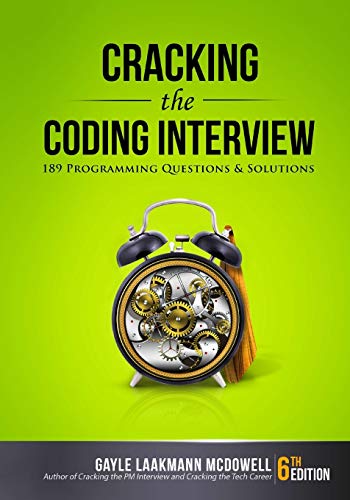7 Best-Selling Computer Science Books Millions Love
Craig Brown, technology consultant and STEM advocate, and Chris Albon, Director of Data Science at DevotedHealth, recommend these best-selling Computer Science books for proven knowledge and practical insights.


There's something special about books that both critics and crowds love, especially in a field as dynamic as Computer Science. As technology continues to shape every corner of society, mastering foundational and advanced concepts has never been more valuable. Whether you're a seasoned developer or just starting, these best-selling books offer tested strategies and insights that have stood the test of time and rigorous expert scrutiny.
Experts like Craig Brown, a technology and business consultant with a passion for STEM education, have shared detailed reflections on titles like Deep Learning, praising their clarity and depth. Meanwhile, Chris Albon, Director of Data Science at DevotedHealth, highlights the practical impact of these works in his own data science journey. Their endorsements reflect not only personal appreciation but also the broad utility these books provide across industries.
While these popular books provide proven frameworks, readers seeking content tailored to their specific Computer Science needs might consider creating a personalized Computer Science book that combines these validated approaches with customized guidance. This option bridges expert knowledge with your unique goals and experience for a truly focused learning path.
by Robert C. Martin··You?
by Robert C. Martin··You?
Robert C. Martin, known as Uncle Bob, draws on decades of hands-on experience to show you why clean code matters beyond just making programs run. You’ll learn how to spot messy, error-prone code and transform it into clear, maintainable software by focusing on naming conventions, function design, and error handling. The book’s practical case studies challenge you to rethink your coding habits and elevate your craftsmanship, particularly through test-driven development and identifying code smells. If you’re invested in writing software that lasts and scales without becoming a headache, this book offers concrete methods and guiding principles to sharpen your approach.
by Martin Kleppmann··You?
Martin Kleppmann is a researcher in distributed systems at the University of Cambridge with hands-on experience as a software engineer and entrepreneur at companies like LinkedIn. In this book, he unpacks the complex challenges of designing data systems, navigating topics like scalability, consistency, and fault tolerance with clarity. You’ll gain insights into how different databases and processing tools work under the hood, and learn to weigh trade-offs when choosing technologies for your applications. This book suits software engineers and architects eager to deepen their understanding of data-intensive systems and make smarter design decisions.
by TailoredRead AI·
This personalized book explores techniques in computer science that have consistently delivered proven outcomes. It reveals essential concepts, practical methods, and widely validated practices carefully tailored to match your background and interests. By focusing on your specific goals, it combines popular knowledge with insights that millions of learners have found valuable, creating a unique learning journey designed just for you. The material covers foundational theories and extends into application areas where these techniques excel, making your study both relevant and engaging. Through this tailored approach, you gain clarity on complex topics and are guided through solutions that resonate with your challenges and aspirations in computer science.
by Eric Matthes··You?
When Eric Matthes first realized how daunting programming could be for beginners, he crafted this book to simplify the learning curve through hands-on projects. You’ll move beyond basic syntax to build actual applications, such as a Space Invaders–style game and interactive data visualizations using libraries like Matplotlib and Django. Matthes, a high school science and math teacher with decades of coding experience, designed this guide for anyone eager to write real Python programs quickly and confidently. It’s particularly suited for self-learners who want to see immediate results rather than just theory.
by Gayle Laakmann McDowell··You?
by Gayle Laakmann McDowell··You?
Gayle Laakmann McDowell's years of experience as both a software engineer and interviewer shine through in this detailed guide that goes beyond typical coding books. You gain not just 189 programming problems but a clear method to decode and solve them, including how to identify hidden cues and approach tricky algorithms. The book also dives into behavioral interview prep and insights into how tech giants like Google hire, making it a resource for mastering both technical and soft skills. If you're aiming to navigate technical interviews with confidence and understand what top companies truly seek, this book offers concrete tools without fluff.
by Jamie Chan··You?
When Jamie Chan realized how daunting Python could seem to newcomers, she crafted this book to strip away the complexity and focus on what matters: hands-on learning and immediate application. You’ll move through carefully selected topics like object-oriented programming and error handling, all illustrated with clear examples and immediate outputs, so you understand not just the theory but how it works in practice. The standout feature is the complete project at the end, which ties everything together and pushes you to apply what you’ve learned in a meaningful way. This approach suits anyone eager to start coding quickly without wading through unnecessary jargon or filler.
by TailoredRead AI·
This tailored book explores a step-by-step journey to mastering Python in just 30 days, blending widely appreciated programming concepts with your unique interests. It focuses on personalized learning paths that match your background and goals, guiding you through practical Python projects designed to build skills rapidly and confidently. The content reveals essential Python syntax, programming logic, and real-world applications, ensuring each topic you encounter is relevant to your preferred areas of focus. By combining proven knowledge with your individual learning needs, this book makes acquiring Python expertise both efficient and engaging, offering a tailored experience that addresses your specific programming ambitions.
by Alex Xu··You?
by Alex Xu··You?
Alex Xu's approach to system design interviews challenges the usual guesswork by offering a structured, four-step framework that demystifies complex technical questions. Drawing on his experience at Twitter, Apple, and Zynga, Xu provides readers with concrete examples like designing a URL shortener and a news feed system, helping you understand the core principles behind scalable architectures. The book’s 188 diagrams clarify intricate concepts, making it easier to visualize large-scale system components. If you're preparing for software engineering interviews or want to deepen your grasp of system design, this guide offers practical insight without unnecessary jargon.
Recommended by Craig Brown
Technology and business consultant, STEM advocate
“Distilled News: A Gentle Introduction to Deep Learning – [Part 1 ~ Introduction] I am starting this blog to share my understanding of this amazing book Deep Learning that is written by Ian Goodfellow, Yoshua Bengio and Aaron Courville. I just started…” (from X)
by Ian Goodfellow, Yoshua Bengio, Aaron Courville··You?
by Ian Goodfellow, Yoshua Bengio, Aaron Courville··You?
What makes this book a staple among experts and enthusiasts alike is how it bridges theory and practice in deep learning. Ian Goodfellow, a Google research scientist known for inventing generative adversarial networks, alongside professors Yoshua Bengio and Aaron Courville, lays out foundational concepts like linear algebra and probability before moving into applied techniques such as convolutional networks and sequence modeling. You’ll find detailed chapters on optimization algorithms and real-world applications ranging from speech recognition to bioinformatics. This is ideal if you’re aiming to grasp both the math and industry uses of deep learning, though it demands some prior familiarity with computer science fundamentals.
Proven Computer Science Methods, Personalized ✨
Get expert-endorsed strategies tailored to your skills and goals, no generic advice needed.
Trusted by thousands of Computer Science enthusiasts worldwide
Conclusion
The collection of these seven best-selling Computer Science books reveals a clear theme: practical, proven frameworks combined with expert validation lead to enduring learning success. Whether it's writing maintainable code with Clean Code, mastering data systems through Designing Data-Intensive Applications, or preparing for high-stakes interviews with Cracking the Coding Interview, each book offers a tested pathway.
If you prefer proven methods, start with Clean Code to sharpen software craftsmanship. For validated approaches to system architecture, combine System Design Interview with Designing Data-Intensive Applications. Beginners eager to build real skills might begin with Python Crash Course and Learn Python in One Day and Learn It Well to gain hands-on experience quickly.
Alternatively, you can create a personalized Computer Science book to combine proven methods with your unique needs. These widely-adopted approaches have helped many readers succeed, offering you a solid foundation to navigate the evolving world of Computer Science.
Frequently Asked Questions
I'm overwhelmed by choice – which book should I start with?
Start with Clean Code if you're focused on improving your coding practices or Python Crash Course if you're new to programming. Both offer practical foundations that set you up for success in Computer Science.
Are these books too advanced for someone new to Computer Science?
Not at all. Books like Python Crash Course and Learn Python in One Day and Learn It Well are designed for beginners, while others like Deep Learning require some prior knowledge but offer valuable insights for growth.
What's the best order to read these books?
Begin with beginner-friendly titles like Python Crash Course, then progress to Clean Code and Designing Data-Intensive Applications. Later, tackle specialized topics with System Design Interview and Deep Learning.
Do I really need to read all of these, or can I just pick one?
You can choose based on your goals. For interview prep, focus on Cracking the Coding Interview. For coding style, pick Clean Code. Each book delivers value independently, but together they cover a wide spectrum.
Which books focus more on theory vs. practical application?
Deep Learning combines theory with applications, while System Design Interview and Designing Data-Intensive Applications lean toward practical system design. Python Crash Course emphasizes hands-on coding projects.
How can I get Computer Science knowledge tailored to my specific needs?
While expert books provide solid foundations, personalized books combine popular methods with your unique background and goals. You can create a personalized Computer Science book for focused learning that suits you best.
📚 Love this book list?
Help fellow book lovers discover great books, share this curated list with others!
Related Articles You May Like
Explore more curated book recommendations






